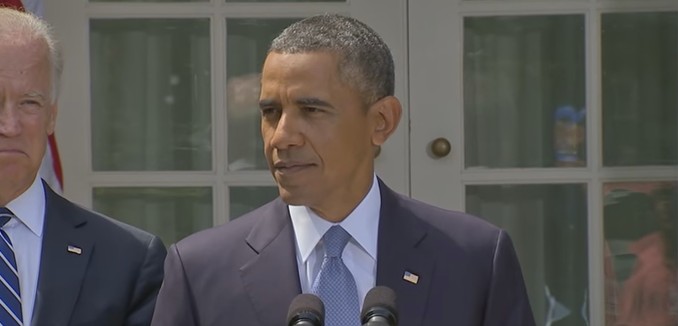The candor President Barack Obama displayed in the lengthy Atlantic article about his foreign policy “is destabilizing,” influential Washington Post columnist David Ignatius wrote in a column on Tuesday.
Ignatius’s criticism of Obama is particularly notable, as he has generally been supportive of Obama’s foreign policy, including the nuclear deal with Iran. Central to his criticism is that idea a President who expresses what he really feels, as Obama did in his interviews with Atlantic journalist Jeffrey Goldberg, can hurt diplomatic relations with allies.
Goldberg’s piece is authoritative and compelling. But it illustrates why presidents usually save such explanations for their memoirs. Such candor is destabilizing: Friends and foes discover what the president really thinks, a matter usually shrouded by constructive ambiguity. We may have imagined Obama’s growing disdain for the Arabs, his skepticism bordering on contempt for the foreign-policy establishment and his “fatalistic” view about the limits of U.S. power. Now, in “The Obama Doctrine,” we have chapter and verse.
When Obama visits Saudi Arabia this spring, will it help that we now know that Obama sardonically told the Australian prime minister “it’s complicated” when asked whether the Saudis are America’s friends? Ditto Goldberg’s revelation that “in private” (ha!) Obama said of the Saudis’ suppression of women’s rights that “a country cannot function in the modern world when it is repressing half its population.”
The New York Times reported on Monday that the president’s “willingness to forcefully criticize [the Saudis and other Arab allies] stunned many in Washington’s foreign policy establishment.” His remarks led Saudi Prince Turki al-Faisal, a former ambassador to the United States and Britain, to express indignation over the interview in a newspaper column.
Ignatius also took issue with other aspects of Obama’s foreign policy. While he acknowledged that “it’s hard to know what would have been the right decisions in Syria,” he found it odd that Obama insisted that non-intervention in the Syrian Civil War was the correct decision, and was seemingly unconcerned about the terrible costs of the war, including more than 250,000 dead and millions of refugees.
He also pointed out that Obama’s outreach to “Islamist democratic parties” such as Recep Tayyip Erdogan’s AKP party in Turkey and the Muslim Brotherhood wasn’t really discussed in the interview. Obama’s support of these parties was “a very bad mistake,” Ignatius wrote, adding that it “spun the Arab Spring in a dangerous direction from which it never recovered.”
In the end, the premises underlying Obama’s foreign policy seemed to be a reaction to what Ben Rhodes, one of his top foreign policy aides, called America’s “overextension” in the Middle East.
Obama reasoned that the Middle East “is no longer terribly important to American interests,” that there’s “little an American president can do to make it a better place” and that American meddling leads to the deaths of our soldiers and “the eventual hemorrhaging of U.S. credibility and power.”
Ignatius rebutted that “Obama was wrong on all three,” explaining “The Middle East does matter; the United States can help, and not doing so hurts our global standing.”
Former Israeli ambassador to the United States Michael Oren charged last week that, contrary to what Obama told Goldberg, the administration considered the Israeli-Palestinian conflict central to all other issues in the Middle East. Oren said in an interview with The Algemeiner that while he was ambassador from 2009 to 2013, he heard “linkage mentioned every single day. Even former National Security Adviser James Jones said that if God came down and asked to solve one problem, it would be the Arab-Israeli conflict. It was doctrinal.”
[Photo: PBS Newshour / YouTube ]




